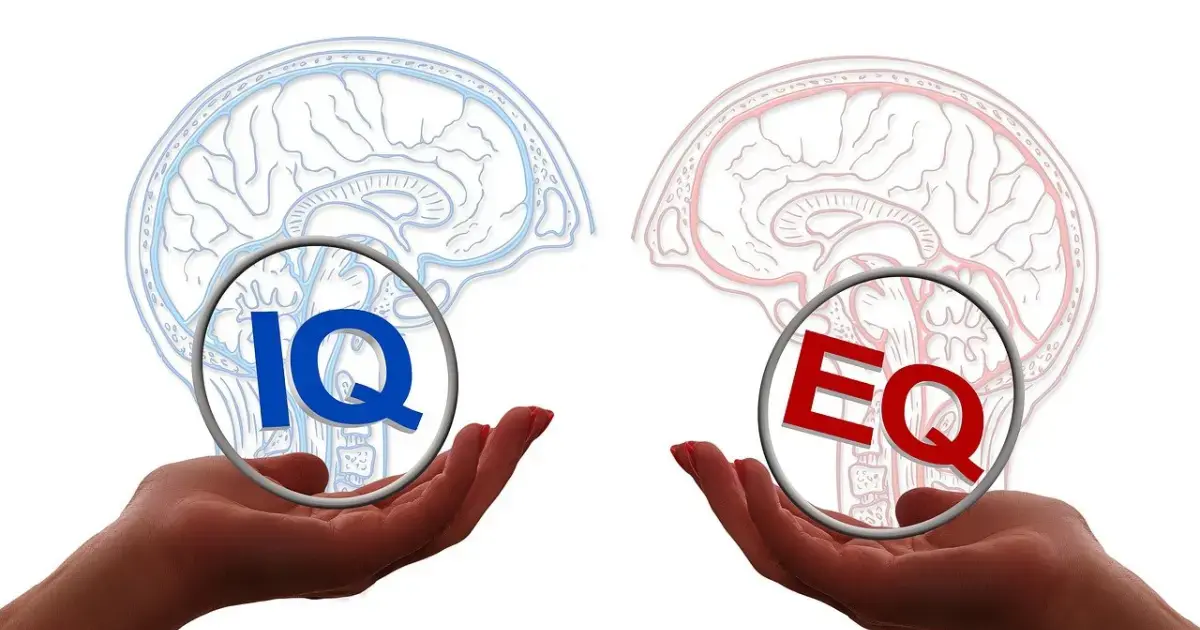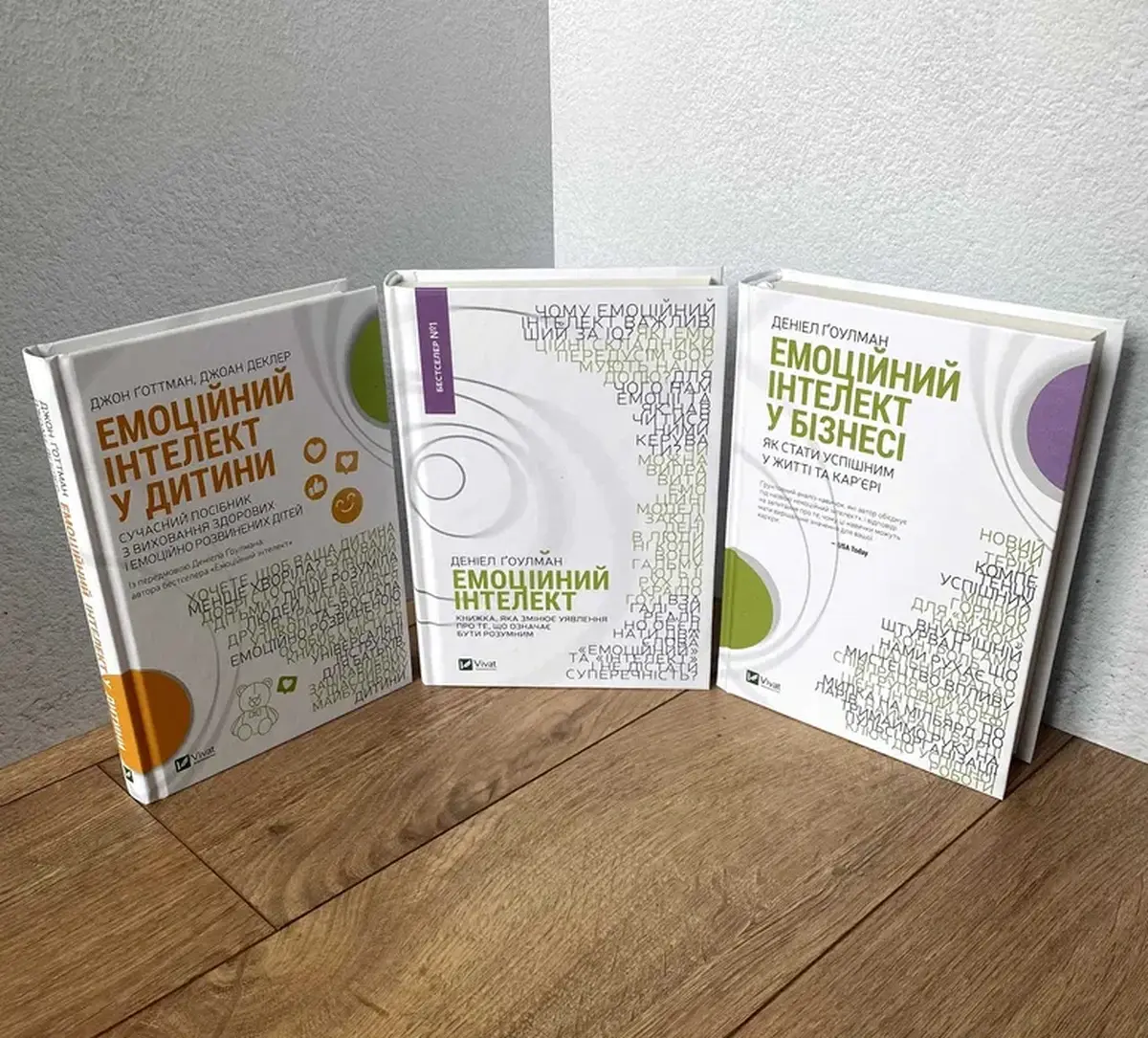 When a person learns to understand the impact of their words and actions on others, they can consciously build harmonious , effectively resolve conflicts, and even prevent them from arising, creating a more productive and supportive atmosphere around them. This ability, as described by Daniel Goleman, the developer and popularizer of the emotional intelligence concept, is a new superpower that can and should be developed to unlock opportunities for career advancement and personal well-being.
When a person learns to understand the impact of their words and actions on others, they can consciously build harmonious , effectively resolve conflicts, and even prevent them from arising, creating a more productive and supportive atmosphere around them. This ability, as described by Daniel Goleman, the developer and popularizer of the emotional intelligence concept, is a new superpower that can and should be developed to unlock opportunities for career advancement and personal well-being.
More Valuable than Intelligence
The popular term Intelligence Quotient (IQ) translates from English to mean “a measure of intelligence,” which quantifies cognitive ability through specialized tests assessing logic and analytical skills. In contrast, psychologists refer to the concept of (Emotional Intelligence or EI) and “emotional intelligence quotient” (Emotional Intelligence Quotient or EQ). Unlike IQ, which focuses on logic, abstraction, and analysis, EQ and EI define the ability to understand and manage one’s own emotions as well as those of others.
The founder of the emotional intelligence concept, Daniel Goleman, is an American psychologist and science journalist who spent over 12 years covering this topic for The New York Times. He is also the author of the bestselling book on the subject. His book, “Emotional Intelligence” (published in the mid-1990s), discusses how understanding feelings can help individuals adapt to challenging circumstances and achieve their goals. Goleman concluded that developing emotional intelligence contributes to success in life and career more effectively than IQ, enabling individuals to make thoughtful decisions and build strong relationships.

Goleman emphasized the importance of emotional intelligence over IQ, arguing that intellect alone does not guarantee success in life and achieving set goals—unlike high emotional intelligence. Experience shows that individuals with developed EI can effectively interact with others, establish proper communication, manage stress, and find opportunities for growth in challenging situations, even without impressive knowledge or exceptional skills. Thus, emotional intelligence (EI) is the ability to genuinely empathize with others while also controlling one’s own reactions.
Components of Emotional Intelligence
People with high EQ or EI understand their own feelings and the emotional states of others. Emotional intelligence manifests in behaviors that create a friendly and safe atmosphere. When a person can manage their , others find it pleasant to interact with them. According to Goleman’s concept, emotional intelligence consists of five key components: self-awareness, self-regulation, internal motivation, developed empathy, and what he calls productive communication skills, which involve interacting and working with others.
Self-Awareness
A person recognizes and understands their strengths and weaknesses, knows what bothers, frightens, and irritates them, what they find pleasant, and what is unacceptable. At the same time, they can imagine how their emotions are perceived by those around them.
Self-Regulation
A person acts not only according to the situation but also based on their own goals, meaning they control their reactions and think about the best course of action.
Internal Motivation
While others may need external incentives (money, praise, or promising prospects) to motivate their actions, individuals with high EI do not rely on external motivation; they have their own goals and develop according to their own plans.
Empathy
People with developed empathy can provide sincere and tactful emotional support to others, which fosters goodwill in their surroundings.

Productive Communication Skills
The final component is the ability to build harmonious (non-competitive) relationships based on trust, respect, and friendship.
High emotional intelligence is a sign of strong mental health, as such individuals can remain productive in stressful conditions, improving the surrounding atmosphere. In business, emotional intelligence allows one to maintain composure and calm in emergencies. Both high EI among employees and the emotional intelligence of leaders are equally important in a work environment, where individuals can accept criticism, take responsibility for failures, avoid or effectively resolve conflicts, and find ways out of crises.
How to Enhance EI
However, a lack of and insufficient internal motivation are not insurmountable barriers to acquiring valuable soft skills. Emotional intelligence can be developed—just like strengthening mental health. To do this, one must take six steps.
Broaden Your Perspective
By starting to track your reactions to people or events, you may discover tendencies toward stereotypes or hasty judgments before considering all the facts. Try to put yourself in others’ shoes—this will make it easier to understand their motivations in decision-making. To better understand and accept yourself and others, you need to open yourself to new experiences and broaden your worldview.
Practice Humility
Avoid boasting about your achievements on to avoid becoming dependent on others’ approval and losing touch with yourself, orienting your views and aspirations based on the opinions of those around you. Personal humility allows you to maintain your internal “compass,” hear yourself, and create internal motivation, which serves as a stable source of mental strength for pursuing conscious goals. The criteria for the right direction lie within each individual.
Be Honest
View yourself through the eyes of an outsider. Analyze your strengths and weaknesses without bias and accept yourself as a whole person.
Explore Your Reactions to Stress
Pay attention to how you cope with unpleasant surprises and prolonged pressure from adverse circumstances. Do you panic or blame others when things don’t go as planned? Observe what happens or has happened when you take responsibility and try to solve the problem. Recall these insights in future stressful situations and adjust ineffective behaviors. To learn to remain calm in a crisis, stop worrying about what cannot be changed and focus on what you can control.
Don’t Shy Away from Responsibility
Learn to take responsibility for your actions—acknowledge your mistakes, apologize for any harm caused, and rectify the negative consequences of your actions.
Analyze the Consequences
A powerful tool for developing emotional intelligence is reflecting on cause-and-effect relationships. By examining the impact of your words and actions on others, you can learn harmonious communication and effective conflict resolution. A leader’s emotional intelligence can be a decisive factor in creating a healthy and productive atmosphere within a team.

Emotional Intelligence in Children
EI should be developed from childhood, according to John Gottman, author of the book “Emotional Intelligence in Children” for parents and educators. The researcher found that children who underwent his emotional coaching from an early age learned to regulate their emotional states, interacted well with others, and improved their attention and focus, which positively impacted their school readiness. In contrast, without developed emotional intelligence tended to experience anxiety and depression.

Thus, the coach created a guide for and educators on what to do to enhance emotional intelligence in children, as this trait helps achieve success in learning and prepares them for adult life. Dr. John Gottman, a professor of psychology, emphasizes that developing emotional intelligence in children is based on the understanding that all feelings are acceptable, but not all behaviors are. This parenting model provides a sense of control—over time, children learn to regulate their behavior.
The author highlights the importance of emotional intelligence for long-term well-being and effective relationship building, advising adults not to prioritize children’s immediate academic success at the expense of emotional development. The emotional connection with parents and mentors is crucial for establishing trust and understanding between children and the adults who see and hear them. To tackle this task, everyone needs to develop emotional intelligence, as it will be a human superpower for all of life’s challenges.
Photo: pexels.com, pixabay.com
